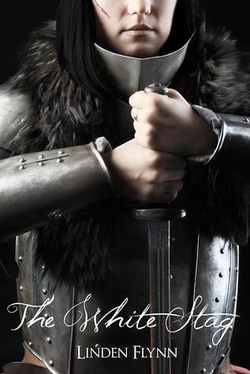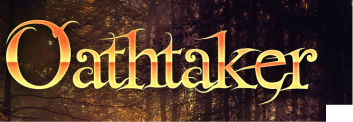
I was provided a copy of this book through Goodreads’ READ AND REVIEW program in exchange for my fair and honest review. I thank the author for this opportunity.
In The White Stag, we are introduced to Cypress, a young woman who was rescued by Hortensia minutes after her birth, to be raised in a village of all women. Cypress is favored by Hortensia, but it has come time for Cypress to leave the village—with the intention that she will—as does each young woman in her time—return “with child.” Cypress will accompany her good friend, Hazel, on this journey to a world never before known to them—a world that includes—men.
There is a “game” going on in the land. A game of treachery, deceit and danger, as a group of knights fight for the right to become king. When Cypress, the best hunter amongst her peers, leaves the village of her childhood days, she and Hazel make their way to a fortress. The adventure unfolds and eventually, we find Cypress take up the armor of one of the knights before her. In doing so, she becomes Cyrus Kingsworth. Cypress/Cyrus’s immediate goal: to take down the man she believes to be her father, a man who seeks Cypress’s own life. Her ultimate goal: to be the last knight standing. Her prize: the kingship.
Flynn did a great job of creating a truly unique, fantasy world—a world YA readers are sure to enjoy. I appreciated that the story did not come along with a love triangle or the all-too-common “insta-love.” Having said that, however, I did have some reservations about some of the relationships. That is, it seemed to me that at times, Cypress felt very close to Rowan, and then, just a few sentences later, would be at odds with him—without any particular reason that I could make out. Likewise, Cypress and Hazel were deemed to be friends as close as sisters, but I confess that I did not “feel” the closeness of their relationship. I also was a bit confused about why the driving force for Cypress (in the game) seemed to be to take down the man she thought to be her father. That fact seemed to motivate Cypress more than the fact that Blackmore was a genuine villain. Even so, I appreciated Flynn’s attention to the detail of this world, the knights themselves, the pirates, and so forth.
Flynn dedicates this work “to those who always said I could. And those who always said I couldn’t.” Flynn definitely could—and did. Well done!
In The White Stag, we are introduced to Cypress, a young woman who was rescued by Hortensia minutes after her birth, to be raised in a village of all women. Cypress is favored by Hortensia, but it has come time for Cypress to leave the village—with the intention that she will—as does each young woman in her time—return “with child.” Cypress will accompany her good friend, Hazel, on this journey to a world never before known to them—a world that includes—men.
There is a “game” going on in the land. A game of treachery, deceit and danger, as a group of knights fight for the right to become king. When Cypress, the best hunter amongst her peers, leaves the village of her childhood days, she and Hazel make their way to a fortress. The adventure unfolds and eventually, we find Cypress take up the armor of one of the knights before her. In doing so, she becomes Cyrus Kingsworth. Cypress/Cyrus’s immediate goal: to take down the man she believes to be her father, a man who seeks Cypress’s own life. Her ultimate goal: to be the last knight standing. Her prize: the kingship.
Flynn did a great job of creating a truly unique, fantasy world—a world YA readers are sure to enjoy. I appreciated that the story did not come along with a love triangle or the all-too-common “insta-love.” Having said that, however, I did have some reservations about some of the relationships. That is, it seemed to me that at times, Cypress felt very close to Rowan, and then, just a few sentences later, would be at odds with him—without any particular reason that I could make out. Likewise, Cypress and Hazel were deemed to be friends as close as sisters, but I confess that I did not “feel” the closeness of their relationship. I also was a bit confused about why the driving force for Cypress (in the game) seemed to be to take down the man she thought to be her father. That fact seemed to motivate Cypress more than the fact that Blackmore was a genuine villain. Even so, I appreciated Flynn’s attention to the detail of this world, the knights themselves, the pirates, and so forth.
Flynn dedicates this work “to those who always said I could. And those who always said I couldn’t.” Flynn definitely could—and did. Well done!


